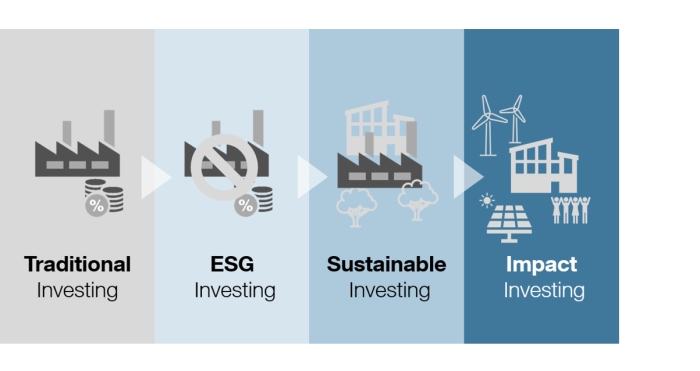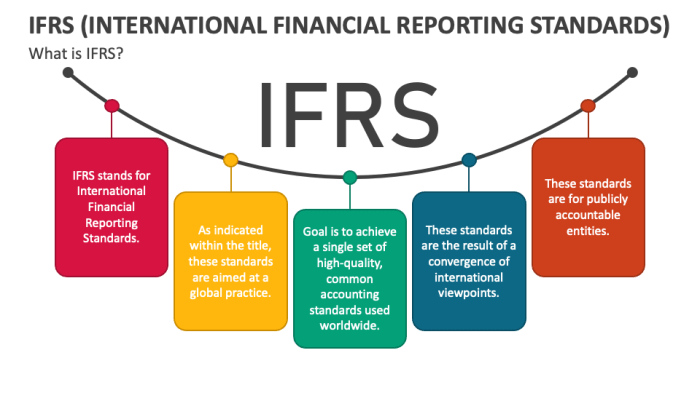The Financial Reporting Challenges Faced by Developing Nations represent a complex interplay of factors hindering economic growth and transparency. Inadequate infrastructure, a shortage of skilled professionals, and pervasive corruption all contribute to unreliable financial reporting. This, in turn, impacts investor confidence, access to capital, and the overall stability of these nations’ economies. Understanding these challenges is crucial for fostering sustainable development and attracting much-needed foreign investment.
From a lack of standardized accounting practices and limited access to technology to the pervasive influence of corruption and economic volatility, developing nations face unique hurdles in producing accurate and reliable financial reports. These shortcomings not only affect domestic businesses but also deter foreign investment, hindering economic progress and sustainable development. This analysis will delve into these critical issues, examining their interconnectedness and exploring potential solutions.
Inadequate Accounting Infrastructure
Developing nations often face significant challenges in establishing robust and reliable financial reporting systems. A lack of standardized accounting practices, limited access to technology, and weak regulatory frameworks all contribute to inconsistencies and inaccuracies in financial statements, hindering economic growth and investment. These issues are deeply interconnected and require a multifaceted approach to address effectively.
The absence of standardized accounting practices creates significant difficulties in comparing financial performance across different organizations within a developing nation, and even more so when comparing them to businesses in developed countries. This lack of uniformity makes it challenging for investors, lenders, and other stakeholders to assess the true financial health and risk profiles of businesses, potentially discouraging investment and hindering economic development.
Do not overlook explore the latest data about Accounting Basics: Everything You Need to Know.
Limited Access to Accounting Software and Technology
Limited access to accounting software and technology significantly impacts the quality and efficiency of financial reporting in developing nations. Many businesses, particularly small and medium-sized enterprises (SMEs), rely on manual accounting methods, which are prone to errors and are far less efficient than automated systems. This lack of technological advancement results in delayed reporting, increased costs associated with manual processes, and a greater risk of fraud. The absence of real-time data analysis capabilities further restricts strategic decision-making. For instance, a small business owner relying on spreadsheets might struggle to identify cash flow problems until they are already severe, hindering their ability to react proactively.
Weak Regulatory Frameworks
Weak regulatory frameworks play a crucial role in hindering accurate financial reporting. Insufficiently defined accounting standards, coupled with lax enforcement, allow for inconsistencies and manipulations in financial statements. This lack of accountability creates an environment where businesses may be tempted to misrepresent their financial position to attract investors or obtain loans. Furthermore, the absence of independent auditing mechanisms increases the risk of fraudulent activities going undetected. The lack of skilled accounting professionals and auditors further exacerbates this problem.
Examples of Inconsistencies in Financial Reporting
The consequences of inadequate accounting infrastructure are evident in the inconsistencies observed across different organizations within developing nations. For example, some businesses might adopt outdated accounting practices, while others may use methods that are not internationally recognized. This lack of standardization makes it difficult to compare financial data across different sectors and regions. Moreover, the absence of robust auditing mechanisms means that inconsistencies and inaccuracies in financial reporting may go undetected, potentially leading to misallocation of resources and hindering economic development. The discrepancies in financial reporting can also lead to difficulties in attracting foreign investment as international investors are wary of inconsistencies and lack of transparency.
Comparison of Accounting Infrastructure
| Country | Accounting Standards | Technology Access | Regulatory Oversight |
|---|---|---|---|
| Developed Nation (e.g., USA) | Generally Accepted Accounting Principles (GAAP) or International Financial Reporting Standards (IFRS), widely adopted and consistently enforced. | Widespread access to sophisticated accounting software and technology; high internet penetration. | Strong regulatory bodies with robust enforcement mechanisms; independent auditing is prevalent. |
| Developing Nation (e.g., Sub-Saharan African Country) | May lack universally adopted standards; inconsistent application of existing standards; limited awareness of international best practices. | Limited access to accounting software and technology; low internet penetration in many areas; reliance on manual methods. | Weak regulatory frameworks; limited enforcement capacity; lack of independent auditing in many cases. |
Limited Skilled Workforce
The shortage of qualified accounting and auditing professionals poses a significant obstacle to the development of robust and reliable financial reporting systems in many developing nations. This deficiency impacts the accuracy, transparency, and overall credibility of financial information, hindering economic growth and investment. The lack of skilled professionals creates a ripple effect, affecting various aspects of the financial landscape, from the preparation of financial statements to the effectiveness of regulatory oversight.
The impact of inadequate professional development opportunities on the quality of financial reporting is profound. Without access to continuing education, updated training, and opportunities for professional advancement, accountants and auditors struggle to keep pace with evolving accounting standards, best practices, and technological advancements. This results in inconsistent application of accounting principles, increased risk of errors and fraud, and a diminished ability to effectively scrutinize financial transactions. This ultimately undermines investor confidence and limits access to capital for businesses.
Impact of Limited Professional Development
A lack of professional development opportunities directly correlates with the quality of financial reporting. Accountants and auditors in developing nations often lack exposure to advanced techniques in areas such as forensic accounting, financial modeling, and risk management. Furthermore, limited access to updated accounting standards and regulatory changes hinders their ability to comply with international best practices. The absence of regular training sessions and workshops on contemporary accounting issues leads to a skills gap, compromising the accuracy and reliability of financial statements. For instance, a lack of training on International Financial Reporting Standards (IFRS) can lead to inconsistencies in financial reporting, making it difficult for international investors to assess the true financial health of companies in these nations.
Challenges in Attracting and Retaining Skilled Professionals
Attracting and retaining skilled accounting professionals in developing countries presents numerous challenges. These include low salaries compared to developed nations, limited career advancement opportunities, and a lack of attractive working conditions. The brain drain, where skilled professionals migrate to countries with better opportunities, further exacerbates the problem. Moreover, the lack of a supportive regulatory environment and inadequate infrastructure can also deter qualified individuals from pursuing or remaining in accounting careers within their home countries. For example, a lack of strong professional accounting bodies and enforcement of ethical standards can lead to a lack of trust and prestige associated with the profession, making it less attractive to talented individuals.
Strategies for Improving Education and Training
Improving the education and training of accounting professionals requires a multi-faceted approach. This involves strengthening university accounting programs by incorporating modern curricula, utilizing advanced technology in teaching, and fostering collaborations with international accounting organizations. Professional development programs should be regularly offered, focusing on continuous learning and upskilling. Government support, through financial incentives and scholarships, is crucial to encourage individuals to pursue accounting careers and further their professional development. Furthermore, promoting the accounting profession as a prestigious and rewarding career path through public awareness campaigns can attract more talented individuals.
Potential Solutions to Address the Skills Gap
Addressing the skills gap in the accounting profession requires a comprehensive strategy involving several key interventions:
- Increased investment in accounting education and training programs at both the undergraduate and postgraduate levels, focusing on practical skills and international standards.
- Establishment of robust professional accounting bodies with strong ethical standards and effective regulatory oversight.
- Implementation of continuing professional development (CPD) programs to ensure accountants stay updated with the latest accounting standards and best practices.
- Attracting and retaining skilled professionals through competitive salaries, benefits, and career development opportunities.
- Facilitating collaboration between universities, professional accounting bodies, and the private sector to develop relevant training programs and apprenticeship opportunities.
- Leveraging technology to enhance learning and access to training resources, especially in remote areas.
- Government initiatives to incentivize accounting professionals to work in developing countries, perhaps through tax breaks or subsidies.
Corruption and Lack of Transparency: The Financial Reporting Challenges Faced By Developing Nations
Corruption significantly undermines the accuracy and reliability of financial reporting in developing nations. It distorts the true financial picture, hindering economic growth and deterring foreign investment. The lack of transparency further exacerbates this issue, creating an environment where fraudulent activities can thrive unchecked.
Corruption’s influence on financial reporting accuracy stems from its ability to manipulate financial statement data. This manipulation can range from minor misrepresentations to outright fraud, ultimately leading to unreliable and misleading information for stakeholders.
Mechanisms of Corruption in Financial Statement Manipulation
Several mechanisms facilitate the manipulation of financial statements through corruption. Bribery, for instance, can induce auditors to overlook irregularities or falsify audit reports. Embezzlement of funds, often concealed through complex accounting schemes, leads to inaccurate reporting of assets and liabilities. Inflated invoices and fictitious transactions are frequently used to misrepresent revenues and expenses, further obscuring the true financial position of an entity. These activities often occur within a network of complicity, involving multiple individuals across different levels of an organization.
The Role of Weak Governance Structures
Weak governance structures create fertile ground for corruption in financial reporting. Lack of independent oversight bodies, inadequate regulatory frameworks, and insufficient enforcement mechanisms allow corrupt practices to flourish. The absence of strong anti-corruption laws and ineffective enforcement contributes to a culture of impunity, where perpetrators face minimal consequences for their actions. Furthermore, a lack of transparency in government procurement processes and public spending provides ample opportunities for embezzlement and misappropriation of funds.
Effects of Lack of Transparency on Investor Confidence and Economic Growth
Lack of transparency erodes investor confidence, hindering both domestic and foreign investment. Investors are hesitant to commit capital to countries where they perceive a high risk of corruption and lack of accountability. This reluctance to invest leads to reduced capital inflows, limiting economic growth and development. The uncertainty surrounding the reliability of financial information discourages entrepreneurship and impedes the development of a robust and efficient financial market. This ultimately translates to slower economic growth and limited opportunities for job creation.
Hypothetical Scenario: Corruption’s Impact on Financial Reporting
Imagine a developing nation where a government official, in collusion with a company’s management, inflates the value of a major infrastructure project. The inflated figures are reflected in the company’s financial statements, presenting a false picture of profitability and financial health. This misrepresentation attracts investors, who subsequently lose their capital when the project’s true financial reality emerges. The government official receives a significant bribe, while the company management benefits from increased short-term valuation. The consequences include a loss of investor confidence, reduced economic growth, and a damaged reputation for the nation. This scenario highlights the devastating ripple effect of corruption on financial reporting and the broader economy.
Economic Volatility and Instability

Macroeconomic instability significantly undermines the reliability of financial reporting in developing nations. Fluctuations in key economic indicators directly impact the accuracy and usefulness of financial statements, making informed decision-making considerably more challenging for investors, creditors, and policymakers alike. The inherent uncertainty created by volatile economies necessitates a more nuanced approach to financial reporting, one that acknowledges and addresses the heightened risks involved.
Effects of Macroeconomic Instability on Financial Reporting Reliability
Macroeconomic instability, characterized by unpredictable inflation, fluctuating exchange rates, and volatile economic growth, directly affects the reliability of financial reporting. High inflation distorts the value of assets and liabilities reported on balance sheets, rendering historical cost accounting less relevant. Similarly, fluctuating exchange rates complicate the translation of foreign currency transactions, potentially leading to significant reporting discrepancies. This uncertainty makes it difficult to accurately assess a company’s true financial position and performance. For example, a company’s reported profits might be significantly inflated during periods of high inflation if inventory costs are not properly adjusted. Conversely, during periods of currency devaluation, a company’s reported assets might be significantly understated.
Challenges in Valuing Assets and Liabilities During Economic Volatility
Accurately valuing assets and liabilities during periods of high inflation or currency fluctuations presents considerable challenges. The historical cost principle, commonly used in accounting, becomes unreliable in volatile environments. Inflation erodes the purchasing power of money, making the historical cost of assets a poor reflection of their current market value. Similarly, currency fluctuations impact the value of assets and liabilities denominated in foreign currencies. Appropriate valuation methods, such as current cost accounting or fair value accounting, become crucial but are often difficult to implement reliably due to limited data availability and expertise. For instance, accurately valuing real estate during hyperinflation requires sophisticated valuation techniques and access to reliable market data, which may be lacking in many developing economies.
Impact of Economic Shocks on Financial Reporting
Economic shocks, such as natural disasters or global financial crises, can severely disrupt the financial reporting process. These events often cause significant damage to assets, disrupt operations, and lead to substantial losses. Accurately assessing the extent of these losses and incorporating them into financial statements requires thorough damage assessments, insurance claims processing, and often, significant adjustments to accounting estimates. For instance, a devastating earthquake could lead to substantial impairment losses on property, plant, and equipment, necessitating significant adjustments to the balance sheet. The subsequent recovery process also presents challenges in forecasting future financial performance.
Difficulties in Forecasting Future Financial Performance in Volatile Environments, The Financial Reporting Challenges Faced by Developing Nations
Forecasting future financial performance in volatile economic environments is inherently difficult. The unpredictable nature of macroeconomic variables, such as inflation, interest rates, and exchange rates, makes it challenging to develop reliable financial projections. Traditional forecasting methods may prove inadequate, requiring more sophisticated techniques that incorporate scenario planning and sensitivity analysis. Furthermore, the lack of historical data in some developing economies further complicates the forecasting process. For example, predicting future sales revenue for a company operating in a country with frequent political instability is considerably more challenging than for a company operating in a stable economy.
Financial Reporting Challenges: Stability vs. Instability
Developing nations face distinct financial reporting challenges during periods of economic stability versus instability. During periods of stability, challenges primarily revolve around capacity building, improving accounting infrastructure, and enforcing regulatory compliance. However, during periods of instability, the focus shifts towards addressing the immediate impact of economic shocks, ensuring the reliability of financial statements amidst volatile macroeconomic conditions, and implementing appropriate valuation methods to accurately reflect the impact of inflation and currency fluctuations. The need for robust risk management practices and the availability of reliable financial data become paramount during times of economic instability, significantly complicating the already challenging task of financial reporting.
Access to Finance and Investment
Businesses in developing nations face significant hurdles in accessing external financing, hindering their growth and contributing to the overall economic challenges these nations grapple with. This limited access to capital directly impacts their operational capabilities and, consequently, the quality of their financial reporting.
Limited access to diverse funding sources, such as capital markets, restricts businesses’ ability to invest in robust accounting systems and skilled personnel. This often results in lower-quality financial statements, which lack the detail and transparency needed to attract investors and lenders. The reliance on informal or high-cost financing options further exacerbates this issue.
Challenges in Accessing External Financing
The challenges faced by businesses in securing external finance are multifaceted. Many lack the collateral required by traditional lenders, while others struggle to meet stringent creditworthiness requirements. Furthermore, the underdeveloped regulatory frameworks in some developing nations create an environment of higher risk for lenders, leading to increased borrowing costs or outright refusal of credit. The absence of credit bureaus and comprehensive credit histories makes it difficult to assess the creditworthiness of businesses. This information asymmetry further limits access to formal financial services. Micro, small, and medium-sized enterprises (MSMEs), which form the backbone of many developing economies, are particularly vulnerable to these limitations.
Impact of Limited Access to Capital Markets on Financial Reporting Quality
Limited access to capital markets directly affects the quality of financial reporting. Without access to equity financing or bond markets, businesses may be forced to rely on less transparent and less regulated sources of funding. This often leads to a lack of standardization in accounting practices and a reduced incentive to invest in robust accounting infrastructure. Consequently, the financial statements produced may lack the necessary detail and accuracy needed for informed decision-making by investors and creditors. This can create a vicious cycle, where poor financial reporting further limits access to capital markets.
Impact of High Borrowing Costs on Business Financial Health
High borrowing costs significantly strain the financial health of businesses in developing nations. When interest rates are exorbitant, a larger portion of revenue is allocated to debt servicing, leaving less for reinvestment, expansion, and operational improvements. This can lead to reduced profitability, increased financial risk, and even business failure. The high cost of capital also makes it challenging for businesses to compete effectively with their counterparts in developed nations that enjoy access to lower-cost financing. For example, a small business in a developing nation might pay interest rates exceeding 20%, significantly impacting its profitability and long-term viability.
The Role of Financial Reporting in Attracting Foreign Direct Investment
High-quality financial reporting plays a crucial role in attracting foreign direct investment (FDI). Potential investors rely heavily on transparent and reliable financial information to assess the risk and potential return of their investments. Accurate and comprehensive financial statements, prepared in accordance with internationally recognized accounting standards, demonstrate a company’s financial health and management competence, thus increasing its attractiveness to foreign investors. The absence of such reporting can significantly deter FDI, limiting economic growth opportunities.
Improved Financial Reporting and Enhanced Access to Credit and Investment
Improved financial reporting is paramount to enhancing access to credit and investment for businesses in developing nations. By implementing internationally recognized accounting standards and strengthening regulatory frameworks, governments can foster greater transparency and accountability. This, in turn, reduces the information asymmetry between businesses and lenders/investors, making it easier to assess creditworthiness and investment potential. The development of credit bureaus and improved access to financial technology (FinTech) can further facilitate access to finance. Ultimately, better financial reporting creates a more favorable investment climate, attracting both domestic and foreign capital, leading to sustainable economic growth.
Informal Economy
The informal economy represents a significant challenge to accurate financial reporting in developing nations. It encompasses a vast array of economic activities that operate outside official regulatory frameworks, lacking formal registration, taxation, and labor protections. This sector’s size varies considerably across countries, but it often constitutes a substantial portion of the overall economy, particularly in less developed regions. Understanding its scale and impact is crucial for effective economic policy and accurate financial reporting.
The significant presence of the informal economy presents considerable difficulties in incorporating its data into national financial statistics. Many informal businesses do not maintain formal accounting records, making data collection challenging and potentially leading to significant underestimation of economic activity. Furthermore, the nature of informal transactions – often involving cash-based exchanges and bartering – makes it difficult to track economic flows accurately. Data collection methods often rely on surveys and estimations, which introduce further uncertainty into the figures.
Challenges in Incorporating Informal Sector Data
The lack of reliable data on the informal economy significantly impacts the accuracy of macroeconomic indicators. Gross Domestic Product (GDP) calculations, for instance, frequently underestimate the true size of the economy because a substantial portion of economic output from the informal sector remains uncounted. This leads to inaccurate assessments of economic growth, poverty levels, and other crucial economic metrics. Similarly, inflation rates may be misrepresented due to the difficulty in tracking price changes in informal markets. Accurate estimations of employment levels are also hampered by the absence of formal employment records within the informal sector.
Impact of the Informal Economy on Financial Reporting Reliability
The informal economy directly affects the reliability of financial reporting by businesses, both within and outside the informal sector. Businesses operating formally may underreport their income to avoid taxes, while those in the informal sector, by definition, do not contribute to formal financial reporting. This discrepancy leads to a skewed representation of the overall economic picture and can hinder investment decisions based on incomplete or inaccurate data. For example, a company’s reported profits might be significantly lower than its actual profits if it engages in unrecorded transactions with informal businesses or engages in tax evasion. This lack of transparency can affect creditworthiness assessments and limit access to formal financial services.
Interaction Between Formal and Informal Sectors and their Effect on Financial Reporting
Imagine a Venn diagram. One circle represents the formal economy, with businesses registered, taxed, and operating under legal frameworks. The other circle represents the informal economy, characterized by unregistered businesses, untaxed transactions, and unregulated operations. The area where the circles overlap represents the interaction between the two sectors. Formal businesses may source materials or labor from the informal sector, leading to unrecorded costs. Conversely, informal businesses might sell goods or services to formal businesses, resulting in unrecorded income for the informal sector and potentially understated costs for the formal sector. This overlap creates a significant blind spot in national financial statistics and corporate financial reporting. The unrecorded transactions within this overlapping area contribute to inaccurate macroeconomic indicators and distort the financial statements of businesses operating in both sectors. The larger the overlap, the greater the distortion in the overall financial picture.
Last Word

In conclusion, addressing the financial reporting challenges faced by developing nations requires a multifaceted approach. Strengthening accounting infrastructure, investing in human capital development, promoting transparency and good governance, and mitigating the impact of economic instability are all crucial steps. By fostering a more robust and reliable financial reporting environment, these nations can attract investment, improve business operations, and ultimately achieve greater economic stability and prosperity. The path forward necessitates collaborative efforts between governments, international organizations, and the private sector to create a sustainable and transparent financial ecosystem.
Quick FAQs
What role does the informal economy play in hindering accurate financial reporting?
The informal economy, operating outside formal regulatory frameworks, makes it difficult to accurately capture economic activity and compile reliable national statistics. This lack of visibility distorts macroeconomic indicators and makes it challenging for businesses to accurately reflect their financial position.
How can international organizations help improve financial reporting in developing nations?
International organizations can assist through technical assistance, capacity building programs for accountants and auditors, promoting the adoption of international accounting standards, and supporting the development of stronger regulatory frameworks. They can also provide funding for infrastructure improvements and technology upgrades.
What are the long-term consequences of consistently unreliable financial reporting?
Long-term consequences include reduced investor confidence, limited access to capital, slower economic growth, and increased vulnerability to financial crises. It also undermines good governance and can exacerbate existing inequalities.









